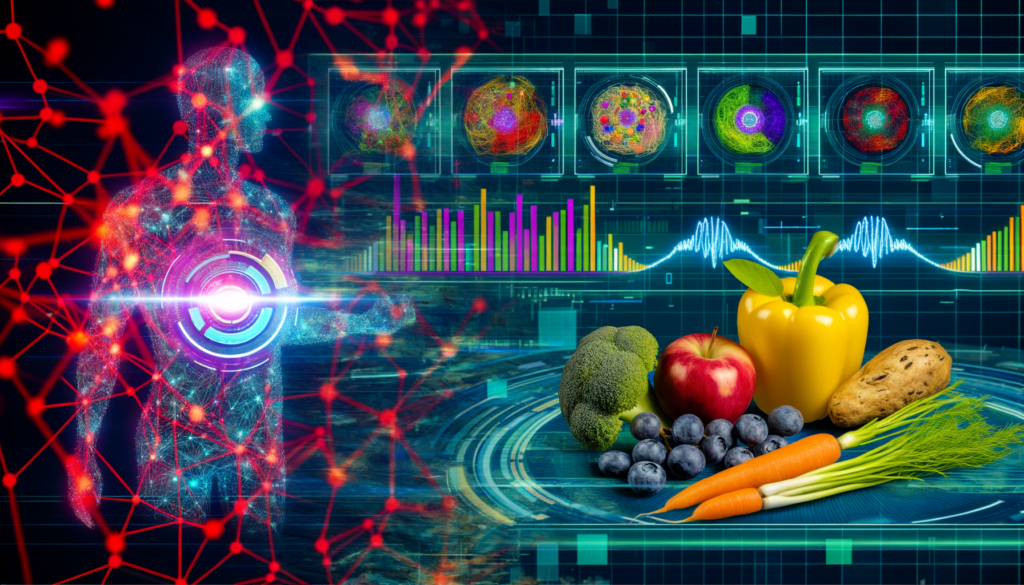As individuals embark on journeys of voluntary speciation, they often explore unconventional paths that blend human evolution with lifestyle choices. One crucial aspect of this journey is nutrition and calorie tracking, which plays a pivotal role in achieving specific health and evolutionary divergence diets. Understanding how to effectively manage calorie intake is essential for aligning dietary choices with these unique goals. This involves not only tracking calories but also focusing on adaptive radiation health strategies, which emphasize dietary adaptations to support evolving lifestyles.
Understanding Calorie Tracking for Speciation
Calorie tracking is more than just a tool for weight management; it’s a key component of nutrition tracking that helps individuals monitor their dietary intake in detail. While calorie counting focuses on the energy content of food, nutrition tracking encompasses a broader spectrum of dietary elements, including macronutrients, micronutrients, and overall eating patterns. For those undergoing voluntary speciation, nutrition tracking can be tailored to support specific dietary needs associated with evolutionary divergence diets.
Calorie Calculators and Nutrition Apps
Utilizing tools like Calorie Calculator Cloud can be incredibly helpful for managing calorie intake. This platform provides detailed calorie calculations to help individuals understand their daily energy needs, whether they are aiming to maintain, lose, or gain weight. Additionally, apps like MyFitnessPal offer comprehensive databases of foods, allowing users to track their intake and make informed decisions about their diets.
For those interested in exploring different pricing plans for such services, Calorie Calculator Plans are available, offering various options tailored to individual needs.
Adaptive Radiation Health Strategies
Adaptive radiation health involves adapting dietary choices to support evolving lifestyles. This can include transitioning to plant-based diets, increasing protein intake, or incorporating specific nutrients believed to support health and evolutionary goals. For example, WHO recommendations for a healthy diet emphasize a variety of foods to ensure adequate nutrition, which can be adapted to support more specialized dietary goals.
Implementing Speciation Nutrition Strategies
Implementing a speciation nutrition strategy involves several key steps:
- Assess Current Diet: Begin by tracking your current food intake using apps like MyFitnessPal or Lark. This helps identify areas for improvement and provides a baseline for future changes.
- Set Dietary Goals: Clearly define what you aim to achieve through your dietary changes, whether it’s aligning with evolutionary divergence diets or enhancing overall health.
- Choose Nutrient-Dense Foods: Focus on consuming a variety of nutrient-dense foods. This can include fruits, vegetables, lean proteins, and whole grains, as recommended by CDC guidelines.
- Monitor Progress: Regularly track your progress, adjusting your diet as needed to meet your goals. Utilize tools like Calorie Calculator Cloud for precise calorie calculations.
Case Studies and Real-World Examples
A well-documented case study on the effects of speciation nutrition is hard to find, as this concept is largely theoretical and not widely researched. However, examples of individuals following evolutionary divergence diets can be seen in various communities that adopt unconventional dietary practices for health or philosophical reasons. For instance, the carnivore diet, which involves eating only animal products, has been explored by some as a form of dietary experimentation.
Challenges and Considerations in Speciation Nutrition
One of the primary challenges in implementing speciation nutrition strategies is ensuring that dietary choices are both effective and safe. This involves consulting with healthcare professionals to ensure that any radical dietary changes do not lead to nutritional deficiencies or health issues. Additionally, tracking progress and adjusting diets accordingly is crucial to avoid adverse effects.
Role of Technology in Nutrition Tracking
Technology plays a significant role in facilitating nutrition tracking for those undergoing voluntary speciation. Apps and platforms like MyFitnessPal and Calorie Calculator Cloud provide users with the tools needed to monitor their intake and make informed decisions about their diets. Furthermore, resources like FDA’s FoodCentral offer comprehensive nutrition data for various foods, making it easier to track nutrients and calories.
Conclusion and Next Steps
In conclusion, managing calorie intake and nutrition tracking are vital components of any journey involving voluntary speciation and evolutionary divergence diets. By leveraging tools like Calorie Calculator Cloud and MyFitnessPal, individuals can better align their dietary choices with their health and evolutionary goals. For those interested in exploring these concepts further, consulting with nutrition experts and healthcare professionals is advisable to ensure any dietary changes are safe and effective.
Whether you’re looking to enhance your health or explore new dietary frontiers, understanding and managing your nutrition is key. Consider exploring resources like Healthline for more information on balanced diets and nutrition strategies. By combining the right tools with a deep understanding of nutrition, you can make informed decisions that support your unique goals.
For those interested in taking their nutrition journey to the next level, exploring the various Calorie Calculator Plans available can provide a tailored approach to calorie management and nutrition tracking.








